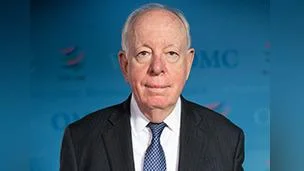The Committee on Trade in Goods (CTG) recently reviewed 35 specific trade concerns, including three new issues. These new concerns include India's measures potentially equivalent to quantitative restrictions on imports of copper, wooden boards, and tyres; India's Quality Control Order (2023); and Canada's new tariffs on certain goods from China.
Previously raised concerns encompass a variety of measures such as non-tariff barriers, environmental policies, import/export restrictions, national security, halal certification, subsidy schemes, export controls, sanitary and phytosanitary measures, discriminatory domestic taxes, administrative procedures, and trade disruptive and restrictive measures. These affect sectors like agriculture, information technology, forestry and food products.
Ambassador Clare Kelly of New Zealand chaired the meeting. She highlighted that the annex to the Annotated Agenda included links to discussions in other bodies provided by members requesting agenda items. Direct links to the trade concerns database were also available.
The CTG has been discussing ways to improve its future work since July. Informal meetings were held on September 20 and December 2. The Chair reported that WTO members use these forums to address trade issues affecting their goods. "All members who took the floor shared the underlying notion that the work of the CTG in the area of trade concerns was extremely important," she noted.
Suggestions for improvement were made in three areas: actions by members themselves requiring a "cultural reset" for participation levels; actions by CTG such as capturing resolved trade concerns and incorporating bilateral meetings; and potential actions by the Chair.
The Least Developed Countries Group reiterated its request for graduated LDCs to benefit from flexibilities regarding export subsidies under the Agreement on Subsidies and Countervailing Measures. Developed economy members expressed willingness to discuss this issue further within relevant technical committees.
The United Arab Emirates submitted a request for extending an existing WTO waiver until December 31, 2030. This would allow nearly 20 members to implement necessary measures related to international trade in rough diamonds under the Kimberley Process Certification Scheme. The CTG agreed to forward this draft waiver decision to the General Council for adoption.
The United States raised concerns about non-responsiveness from certain members within various subsidiary bodies of the CTG regarding questions posed by others as well as non-notification pursuant to certain WTO agreements.
Lastly, draft decisions introducing Harmonized System changes into WTO Schedules of Concessions were considered with an aim towards extending six HS collective waivers until December 31, 2025.
The next formal meeting is scheduled for April 9-10, 2025.

